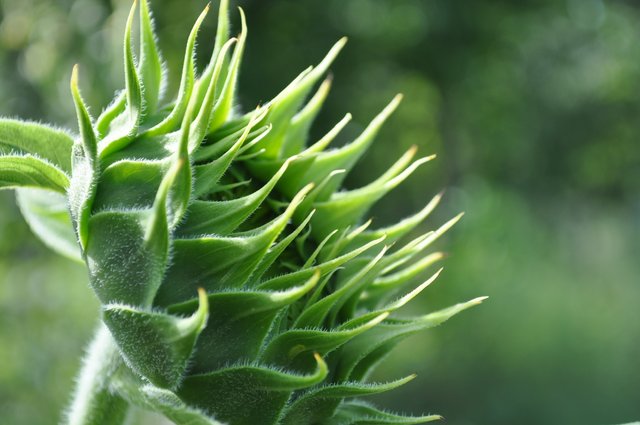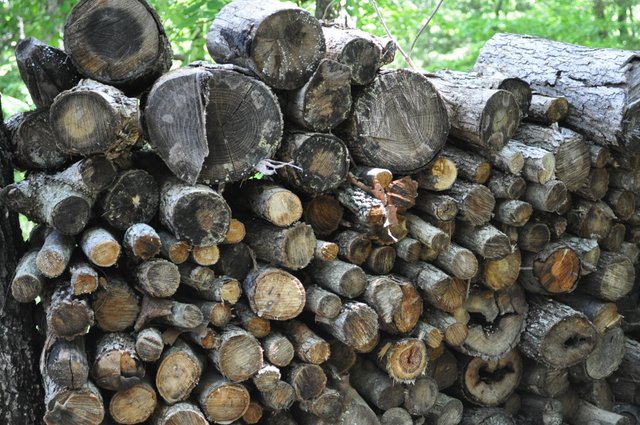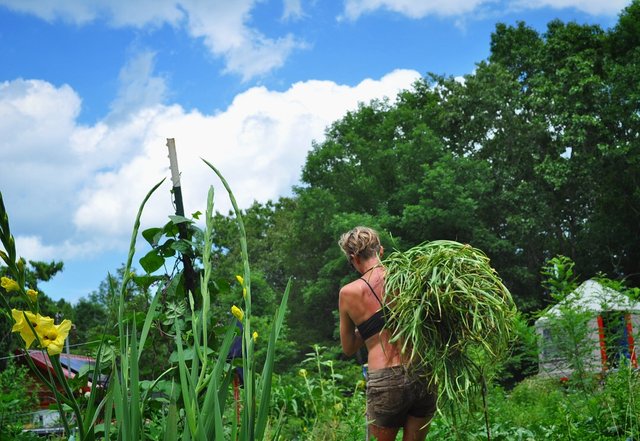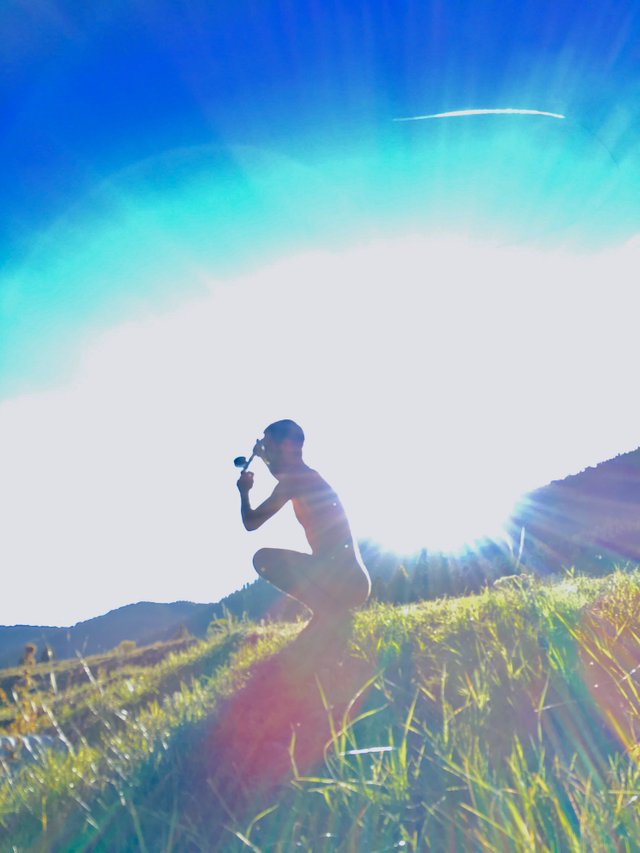Putting the Eco In Economics
We’re all familiar with the concepts of economics and ecology, but how often are they combined? Eco economics is not a new concept; in fact it is the original form of economy.

Before a globalized industrialized economy, we were much more closely tied to the capacity of the immediate ecosystems. But we’ve strayed from the path and now, as in no other moment in time, it is absolutely imperative that we reintegrate the awareness that we live and are supported by a finite planet. It not only behooves us to ally with and rearrange our lives in relation to eco economics, but it is imperative for the very survival of homo sapiens and countless other species whose survival depends on our actions.
Energy Slaves
Since the industrial revolution (and indeed before in some cases) the capacity for human’s influence on the planet has increased at an alarming rate. With the advent of liquid refined petroleum, we could utilize the massive stored energy from sunlight from millions of years ago at a rate previously impossible.
We could simply extract a material that contained so much potential energy that our capacities to “get stuff done” grew in leaps and bounds. This ability allowed for previously unknown levels of exploitation of natural resources at a rate far more quickly than they were being reproduced.

Previously (and sadly still currently) the discrepancies between the “haves and the have-nots” are real and felt by us all. The bourgeois own the property and means of production while the proletarians or peasants do the work. Tenant farmers of serfs worked the land owned by people in positions of power and did so at times against their will. Human slavery was the ugly crutch that these systems relied upon.
With petroleum, all of that changed.
No longer were (as many) human slaves needed, for this liquid fuel in the form of gasoline or diesel enabled the enslavement of petroleum slaves. The physical workforce was no longer needed and so fewer people could affect larger areas of land and sea.
Ecosystem Limits
What this did was further disconnect us from natural cycles and the innate limitations of local ecosystems. All natural systems have a carrying capacity, an upper limit of growth, after which point the system culls or sheds the excess. Trees in an overcrowded forest get choked out and die, booms of animal populations lead to busts and heavy mast years are followed by lean harvests.

But this is not the case with our human economic system, which strives for infinite growth.
With a system that is based upon non-renewable sources of energy (the very core of industrial society), it is by definition doomed to fail. The problem lies in the paradigm, upon which our entire economic system was founded: the belief that there is an infinite pool of resources to draw from to be extracted and manipulated. We humans are not living in accordance with Earth mandated limits. Operating under this false pretense is wreaking unimaginable havoc on many levels.
Humans have created a sick society that is propped up on this lie of infinite growth fueled by infinite resources. The economy that believes and in fact requires constant and rampant growth is one that is destined to fail.
To begin addressing how eco economics might play out, we must first grasp how ecology worked and at least entertain (if not embody) the Gaia theory that espouses that the Earth is a single self-regulating & living organism.
A body not unlike our own that communicates throughout a system of interconnected parts and feedback loops (much like our own aches and pains, joys and excesses.)
This reality runs counter to all the mechanistic understandings and beliefs that are brought to the table with industrial capitalism.

In nature, there are natural checks and balances.
There are shortages, illness and destructive forces of nature, but they occur as a natural balancing tool of any ecosystem. This is one element that is sorely lacking in our capitalistic driven economy. The free market will sort itself (or be bailed out- but where is the true cost of this bailing…) we are told, but where is the feedback for whether the foundation upon which all of this rests is sound or not?
The current model of privatizing profits and socializing costs is one where the many bear the cost while the few benefit. This is never the case in a natural ecosystem, but this excess and imbalance only takes place when fuelled by greed and fear of scarcity. This has allowed governments and banks to subsidize industries that don’t work! Without subsidies, the structure crumbles and the people have borne the environmental and financial cost of continuing to operate failing industries. This is NOT eco economics
Modeling an economy after billions of years of evolution seems wiser than one that is only a couple of hundred years old doesn’t it? The amazingly complex and interconnected web of life has proven effective and supporting life thus far, so why not learn a thing or two?
Wisdom from the Sun
The basis for terrestrial life is incoming energy in the form of solar energy. This is transformed into sugars through the magic of photosynthesis and creates the inputs needed to support life. This is said to occur at about 1% efficiency, meaning that the ecosystems operate with a 1% surplus. The sunlight turns into plant and algae tissue, which feeds the rest of the system. This is a great starting point for modeling our economy after. If we had our economic systems tied directly to real life, we simply could not grow beyond the carrying capacity for life.

Thus as a starting point for eco economics, the growth of any economic endeavor must be directly linked to an ecosystem’s potential to support that growth.
B Corp
B corporations are making great strides to be more ethical and transparent in their business and this is a great step forward. Fair labor practices, healthier production methods and distribution of wealth are all great improvements. Still there is an undercurrent of constant growth required for business to continue. We must take lessons from past civilizations whose growth outstripped the carrying capacity of the Earth. The result was the destruction of vital resources like water and soil through deforestation, erosion and loss of biodiversity. Simply put, death follows in the wake of this destructive and short-sided acting.
Positive Movement
Moving forward there is great hope as many brilliant minds are working towards a healthier and more sustainable future. We cannot rely on governmental bodies or regulations to determine our direction-- it is up to each and every one of us to make the necessary shifts to build momentum toward eco economics. Movements like Permaculture, restoration agriculture (pioneered by Mark Sheppard), the work by Paul Stamets, Vandana Shiva, Wynona LaDuke, Rowan White and countless others illuminate the future of eco economics.
We have the potential to turn this ship around and avoid disaster, if only we learn form the wisdom of nature. The fate of the next 7 generations lies in the decisions of us all. What decisions are you making today?
Posted from my blog with SteemPress : http://www.ozarkmountainjewel.com/2018/11/18/putting-the-eco-in-economics/
Woo! Permaculture and Paul Stamets! Something I know a bit about :)
Exactly! There's a finite amount of material on Earth, and some of it, once destroyed, is extremely difficult for humanity to recreate.
Hey, could you recommend a badass book about soil health and restoration? I'm reading Gaia's Garden right now, and I'll probably be done with it this week. I'd like to have another book lined up for after it, and soil ecosystems are extremely interesting to me.
Posted using Partiko Android
Awesome- love your fervor ! This is a book we have really enjoyed. You can also look into Elaine Ingam and that will lead you in a good direction!! she has some vids online too but they are rather dry :)
Sweet, thanks! I think I heard Elaine talk on a podcast episode with @mariannewest on @sustainablelivin once. That was the episode the piqued my interest in soil! I'll look into her work first.
Posted using Partiko Android
Awesome!! all good things :) so much interconnection :)
It's really astounding. So much that I had never known just a few months ago, and it's like there's a whole new world that's been revealed.
Posted using Partiko Android
That is SO exciting to hear!!! <3
ini and wren....are some humble peeps. they have studied with so many authors and growers....from all over the place! authors..themselves. truly...they are living examples...of many of the great books i've read...and it's so inspiring to me they have decided to share their proof of brain and heart...here on the blockchain. if they were just on YT alone...i would follow them there HAPPILY...but just so grateful they are HERE! dude...they studied with Eliot Coleman..and the organic growers of Maine...as well as hybridizing...their knowledge base into permaculture of which they are certified. one of the coolest peeps IMO they studied with was Eliot Coleman...and those he studied with. the neerings. if you haven't caught eliot works...catch up on it here: the urban farm podcast...is a GEM! he is the newest interview: https://www.urbanfarm.org/2018/11/17/400-eliot-coleman/ his books are among my fave! "four season harvest" and the use of high tunnels...which ini and wren are using....is a GAME CHANGER! https://www.amazon.com/Four-Season-Harvest-Organic-Vegetables-Garden/dp/1890132276/ref=sr_1_1?ie=UTF8&qid=1542636858&sr=8-1&keywords=four+season+harvest
I'll go subscribe to the urban farm podcast now! Listened to an hour and a half of Elaine Ingham on the Permaculture Podcast yesterday, and it was awesome. Elliot Coleman is one I've not heard of yet.
Wow, I didn't know all that. I was told, I think by @freedompoint, that they were permaculturists, so that's why I came here. Didn't know what I was getting into! :D
Posted using Partiko Android
oh man...you'll dig eliot! the urban farm podcast toooooooo! i love all you're doing nathan! are you on dtube bro? i haven't caught it if so. you should be in nathans 777 dtube group that is forming! https://steemit.com/dtubesnapq/@nathanmars/24vl8hwo #dtubesnap your chickens and yard bro!
I've not posted on dtube yet.
A. I'm not sure how to
B. Every time I've tried making a video, I develop a stutter and forget how to talk! 😂
Posted using Partiko Android
i totally feel ya! i suppose...many peeps feel that way. wasn't the part about stamets...and stuttering cool?!!!! ;) man..at some point...you will NAIL...it on dtube! just know we have your back! little clips...just showing your yard as you imagine what it will be like. :) just keep sharing how you do bro! you are so felt and appreciated!!!
here's elaine being interviewed...on the urban farm podcast. https://www.urbanfarm.org/2017/01/19/elaine-ingham/
I also believe we can turn it around. I think a big part of it is popularizing the currents you're talking about. Bringing back what worked before and wedding that to new technologies that can make it work even better is to me the ideal.
I also think that there is always a handicap "sustainability positive" people have in understanding those who are working towards destruction for short-term selfish gain. We always underestimate the forces of extraction and exploitation. We prefer to get on with the enjoyment of our happy lives, until their power grows so great that they no longer leave enough left for our happy lives to continue.
So along with working diligently toward what we want more of, I think it is also important that we each figure out how we can thwart the drive to more power of those bent on destruction. It's not about getting lost in pushing against. There must be no push. But containment of some kind is essential, or they absolutely will never stop until they have made everything else impossible.
Precisely!
Wow fantastic thought... if you ever feel inspired to write more on that, I would have totally open ears and really sit with your thoughts. I agree there is a massive handicap and we totally get "out of sight out of mind" creating our little microcosms and economies! totally open to hearing steps and ideas toward containment, this is something I don't put a lot of energy towards!
I actually addressed this a bit in my posts from today (video) and yesterday, especially the post. It's a starting place, at least, to look at what others have done before and see how we can adapt it to each situation.
To listen to the audio version of this article click on the play image.

Brought to you by @tts. If you find it useful please consider upvoting this reply.
good post
Current politics and even political systems not just in US but elsewhere too do not seem capable of addressing or even grasping the problem